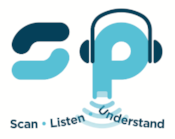Neurodiversity and Preparing for January Exams
Who wants to think about January exams?
We’re not expecting a great show of hands here – in fact, we’re entirely sure that pretty much nobody wants to start thinking about them, especially as we’re in the week where the tree goes up and the mince pies come out. But that doesn’t mean that we don’t have to start thinking about them, especially as they’re actually a pretty good sign that education is getting back on track, and we’re in the recovery period after the events of the past year and a half. Although they might not feel like it, they’re a good sign that learning is coming back strong. It’s hopefully back to business as usual – or as usual as it ever can be in education – and it’ll make a lot of difference when it comes to learning and thriving in schools.
And although it’s a bit of a corny one, there’s never a better time than right now to start preparing. Revision and getting prepped for exams isn’t exciting or festively fun, but it’s a great way to make sure that when you do walk in to that exam hall come January, you’re feeling as relaxed as you can be. And if you’re neurodiversetoo, a lot of people might feel like exams are quite daunting, or simply that they don’t give you the best theatre in which to demonstrate your skills. But where there’s a will, there’s almost always a way, and we’ve put together a handy prep checklist for parents and students that might just make all the difference when it comes to those January papers.
✅
Make sure that all access arrangements have been made: if you or someone in your life has dyslexia or other conditions that might make a difference to reading skills, they could be entitled to a reader, extra time, or an EdTech provision like an ExamReader. Check it out with your educators long before the papers hit the desk – arrangements like this need to be made in advance.
✅
Start building revision into a daily routine before term ends, and across the festive break period – it’s easier to form a habit if they do it around the same time of day too, especially if they struggle with executive dysfunction, as some people with dyslexia and ADHD do. Maybe just after breakfast, or after dinner. Try not to revise just before bed though – it could lead to difficulty ‘switching off’.
✅
Try to avoid ‘cramming’ – this is short-term, intense revision, usually begun a few days or weeks before the exam. It’s much better to do a little a day, as cramming can really heighten feelings of stress and pressure. It also doesn’t leave much time to touch base with educators in case you run into a problem.
✅
Find the revision methods that work. Some people learn by talking to others, some by repeatedly copying things down, some by dictating and listening to things back on an audio recording. If extended reading is a struggle, shake things up and try something new – breaking the stress cycle is important, and adding additional pressure into the equation with extended reading can help with nerves a lot.
✅
And if a student does find that they learn best when they’re talking and discussing, open up the floor to group revision sessions, either in person or online, or get parents involved with the revision session.
✅
Make sure that anxiety and stress are being monitored. Regular mental health check-ins are important at the best of times, but during exam season, they’re especially important – and this goes doubly so if a student is neurodiverse, as they might be feeling the pressure more than most. Putting aside a few minutes a day to chat is important, and establishes that a parent is open to mental health concerns their children might have.
✅
Discuss the exam outcomes long before results day – do they need certain grades to progress somewhere? Do they have a contingency plan if their results aren’t as planned? Although it might seem like a bit of a downer, knowing that you’ve got a second option in place can actually make students feel less stressed when they go in to the exam, as it’s no longer a ‘make-or-break’ scenario.
✅
Bust stress by realising that there’s another chance. Remember – in most cases, there’s always a resit if the results don’t go as planned. So go into the exam thinking that this is just a first try, if that mindset helps at all – there’ll likely be a second one if they need it.
✅
Touch base with educators, especially SENCo staff – although they’ll be very busy at exam time, they’re often best-placed to help out with any exam prep or revision problems that a student might be facing, as they’ll probably have tried-and-tested strategies and a wealth of experience of things that work.
January exams might feel scary – they come at the end of a fabulous festive break for those of us who celebrate it, and heading back into class for what feels like an intense period of testing might not be the best way to emotionally start the new year. But they’re important in many cases for academic progression, and getting people where they want to go, and into roles they’ll thrive in.
Deep breath, festive revision snacks on the table, Christmas playlist on. You’ve got this.
